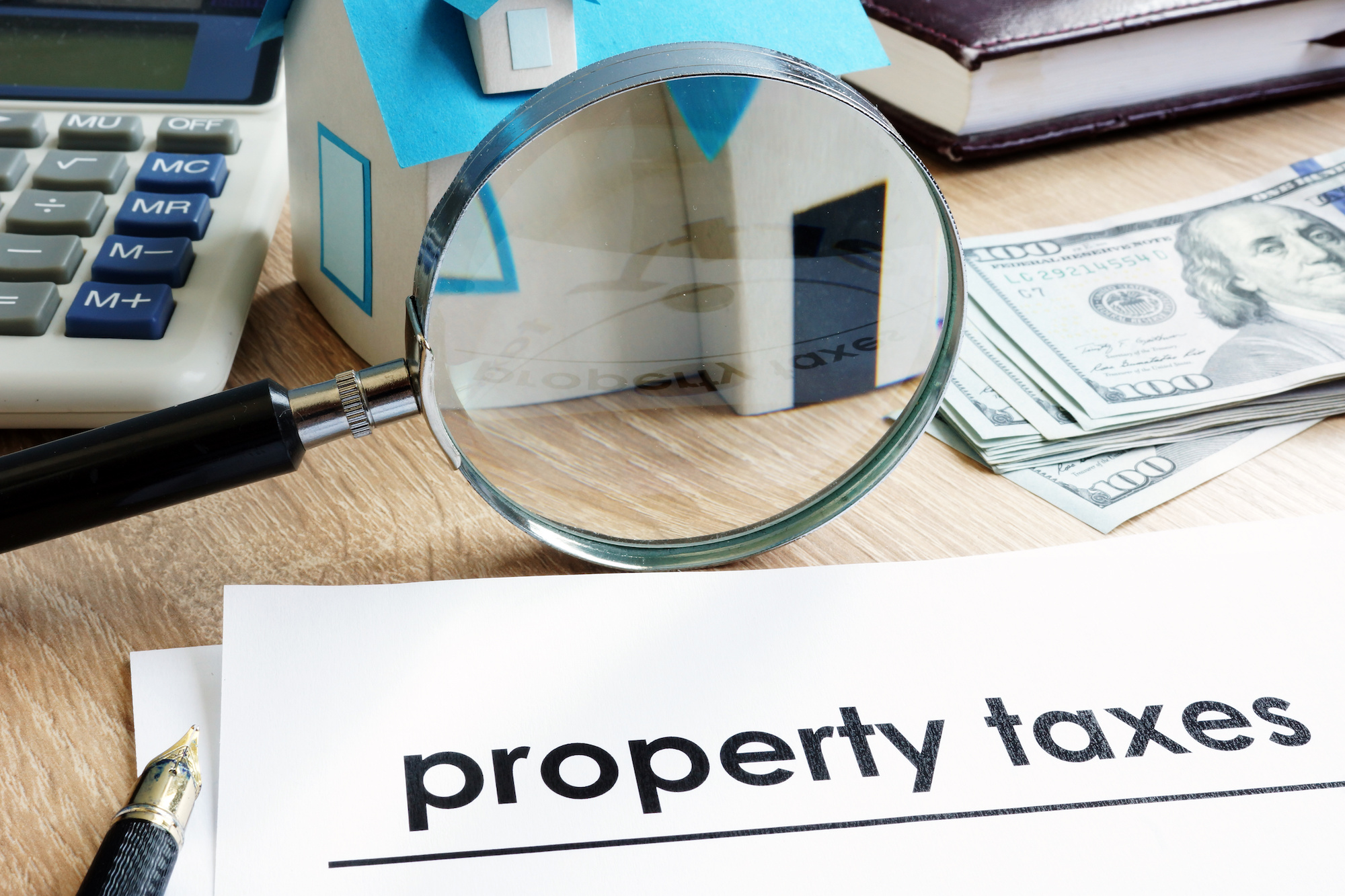States with the highest and lowest property tax rates
Each state in the US has its own way of assessing taxes, which fund various items in the state’s budget and property taxes can play a big role in that funding. When you’re considering the best places to invest in real estate, the property taxes are one calculation you can use to determine if you’ll get a good cash-on-cash-return from your investment.

Table of contents
What are property taxes?What is the effective property tax rate, and how do you calculate it?5 States with the lowest property taxes5 States with the highest property taxesWhat are property taxes?
Property taxes are taxes paid by property owners on their homes (or other types of property). These can be a major source of income for local governments, who use it for education, infrastructure, public transportation, parks and recreation, and payroll for municipal workers like police, firefighters, and public works employees.
Property taxes are just one component of a state’s entire mix of state and local taxes, which also include sales, income, and excise taxes. And while there are some states that don’t levy income taxes (Alaska, Florida, Nevada, New Hampshire, South Dakota, Tennessee, Texas, Washington, and Wyoming), all states have a minimum property tax.
The amount you pay in property taxes depends on where you live and on the cost of your home. According to the US Census Bureau, the national average household property tax bill is $2,471 per year. But the rate varies widely between the states with the lowest (Hawaii at .28% and Alabama at .41%) and the highest (New Jersey at 2.49% and Illinois at 2.27%).
There are, however, programs in various states that allow some residents exemptions to property tax. For instance, some states offer a homestead exemption, where you won’t pay property taxes on a certain portion of your home’s value if you meet age or income requirements following the death of a homeowner spouse or after declaring bankruptcy.
There are other exemptions in some states that lower taxes for older homeowners and people with disabilities, military veterans, and those who do renovations to install renewable energy. Of course, these don’t automatically show up on your tax bill, so you’ll need to research and pursue exemptions in your state.
What is the effective property tax rate, and how do you calculate it?
The effective property tax rate is the percentage of a property’s value—assessed value or estimated market value—paid in property taxes during a given year. To calculate your own property’s effective tax rate, divide your annual tax bill by the estimated market value of your property.
Example: If your property is worth $420,000 and your annual property tax bill is $10,200, your individual effective tax rate would be 2.42%.
Keep in mind that a lot of variables go into evaluating whether a high or low property rate should be a priority among your considerations for buying property. For instance, Illinois has one of the highest property tax rates in the country, but lower home prices may more than offset the tax burden compared to other states with a more expensive housing market.
Some states might offset the fact that they have no income or sales tax with higher property taxes. And some might have prioritized education by raising property taxes to fund better education systems—a consideration for families with school-aged kids.
5 States with the lowest property taxes
There are no states with no property taxes. Here are the states with the lowest.
1. Hawaii
Property tax rate .28%
Median home price $702,288
Hawaii has the lowest effective property tax rate in the country, but it does cost to live in paradise. It is one of the most expensive states to live in and has the highest median home value, which means that the actual dollar amount homeowners spend is on the high side.
2. Alabama
Property tax rate .41%
Median home price $165,334
Alabama has both a low property tax rate and home prices that are below the median home value in the United States ($334,500 in March 2021, according to the National Association of Realtors), which makes the state a relative bargain.
3. Colorado
Property tax rate .51%
Median home price $345,000
The effective property tax rate in Colorado is low, but home prices are high—and currently soaring. According to the Colorado Association of Realtors, in February 2021 the median sales price for single-family homes in the state rose 10.2% in the last year.
4. Louisiana
Property tax rate .55%
Median home price $183,101
Louisiana, like several Southern states, has both a low effective property tax rate and low median home values, as well as other perks—like some of the lowest gas taxes in the country.
5. District of Columbia
Property tax rate .56%
Median home price $687,778
Though Washington, D.C. isn’t a state, it does administer its own property tax, which is low. However, the cost of living in Washington DC is high and its housing costs are some of the highest in the nation, with a one-year rise of 3.6%, according to data collected by Zillow.

5 States with the highest property taxes
Although there are many factors to consider when buying rental property, here are the states with the highest property taxes.
1. New Jersey
Property tax rate 2.49%
Median home price $394,553
New Jersey has high property taxes, high property values and is one of the most expensive states to live in. However, about 60% of the property tax revenue in the state goes to fund education—a consideration for families with young children.
2. Illinois
Property tax rate 2.27%
Median home price $229,866
Illinois has the second-highest tax rate in the country, at 2.27%, but a low median home price of $194,500. This means annual property taxes for someone with a home value that matches the median would be $4,419—lower than other states that have lower tax rates but higher median home prices. Those who live in Chicago, for instance, will see that the overall cost of living in Chicago is 20% less than in other big cities, like the cost of living in NYC.
3. New Hampshire
Property tax rate 2.18%
Median home price $351,659
New Hampshire has no income or sales tax and relies heavily on property taxes—the highest reliance in the US. Local government, which is funded almost entirely by property taxes, pays for most services in the state. So while residents pay a high effective tax rate, they’re also likely to have more state- and locally-funded improvements and services.
4. Connecticut
Property tax rate 2.14%
Median home price $305,391
Property taxes account for most of the revenue and tax collection for local governments in Connecticut, and a large percentage goes to schools. And Connecticut’s property tax as a share of state and local tax revenue has steadily increased in the last 20 years. One thing to note: Neighboring states like New York and Massachusetts, which are also high tax states, have caps on how much their property taxes can increase in a year. Connecticut does not.
5. Vermont
Property tax rate 1.90%
Median home price $287,191
A statewide education tax is one reason Vermont has some of the highest property tax rates in the country. In fact, it’s the largest single source of property taxes in the state—and its students consistently rank among the highest performing in the country.
Median home values are seasonally adjusted, listed as of April 30, 2021, according to data from the Zillow Home Value Index, except where specified.
Bungalow is the best way to invest and manage your real estate portfolio. We work with you to identify, purchase, fill, and manage residential properties—so that you can enjoy up to 20% more in rental income with a lot less stress. Learn more about Bungalow.
Ready to find your next home?
Move-in ready homes and a built-in community so you can feel at home, together — wherever you are.
Suggested articles



